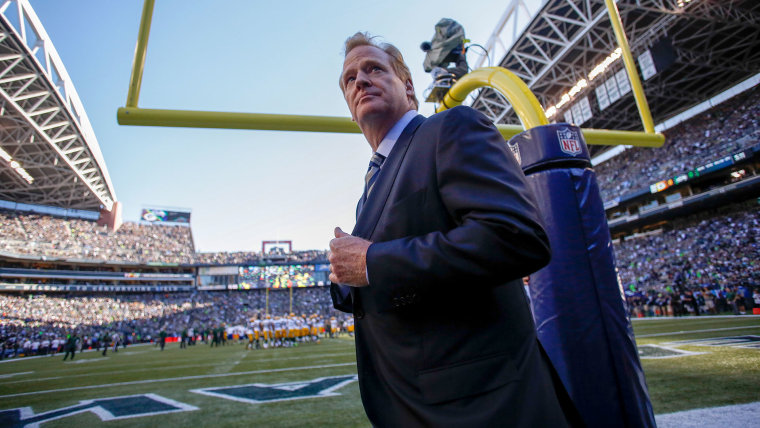Policymakers in Washington have taken quite a bit of interest in the National Football League lately, for reasons that have nothing to do with rooting for one team or another. For example, Brian Fung
reported on the latest from the FCC.
Federal regulators on Thursday sacked the longstanding sports "blackout" rule that prevents certain games from being shown on TV if attendance to the live event is poor. In a bipartisan vote, the Federal Communications Commission unanimously agreed to strike down the much-criticized 40-year-old policy. Under the blackout rule, games that failed to sell enough tickets could not be shown on free, over-the-air television in the home team's own local market.
I haven't been interested in sports in a long while, but I know this is good news for fans. Indeed, I grew up in Miami rooting for the Dolphins, who've long had poor attendance. I lost count of how many times I wanted to watch a home game only to discover I couldn't because the game wasn't sold out. (This includes a 1983 playoff game against Seattle, which 10-year-old me was forced to listen to on New Year's Eve on the radio. For goodness sakes, the radio.)
The point of the "blackout" rule, of course, was to boost ticket sales -- if you want to see your local team, go to the game and watch. If it sells out, you can watch it on TV; if not, well, you can still buy a ticket. But given the fact that many Americans can't afford ticket prices, and the NFL is a multi-billion-dollar enterprise, yesterday's decision helps the viewing public in an obvious way.
The FCC vote was five to zero.
But let's also note that federal policymakers' interest in pro football suddenly goes well beyond television broadcasts. The league's tax-exempt status is also very much on Washington's mind.
Outrage is boiling over a rash of NFL player arrests for violence against women and children, drawing new efforts to scrap a league tax break that critics call unjustified. The NFL League Office, which organizes broadcast rights, negotiates with the players union and pays commissioner Roger Goodell his reported $35 million salary, is organized as a 501(c)(6) tax-exempt organization, allowing it to avoid owing taxes on certain activities. The break may seem unfair to some, but it is perfectly legal and accounts for a only small slice of the NFL's revenue.... [O]nly part of the NFL that falls under the exemption is the League Office. The IRS has blessed the setup, a complicated structure in which much of the league's profits are taxed, while more mundane expenses are exempt.
Sen. Maria Cantwell (D-Wash.) unveiled a proposal several weeks ago to strip the National Football League of its tax-exempt status because of the Washington team's offensive mascot name. Soon after, Sen. Cory Booker (D-N.J.) and others targeted the NFL's tax status in the wake of domestic-violence scandals and the league's often-ridiculous handling of the incidents.
The Politico report added, "Lawmakers in the House and most Senate Republicans don't seem interested, so action in the near term is not likely."
Still, the level of interest in this has reached a level without recent precedent, making the prospects for change real.
For more background on the NFL's tax status, Jordan Weissmann had
a good piece on this a few weeks ago.
